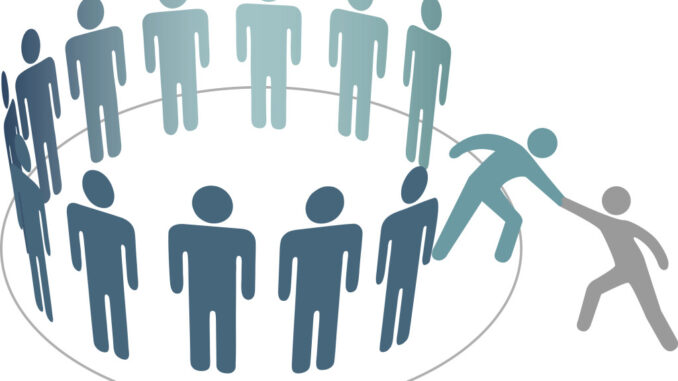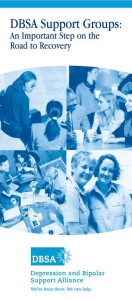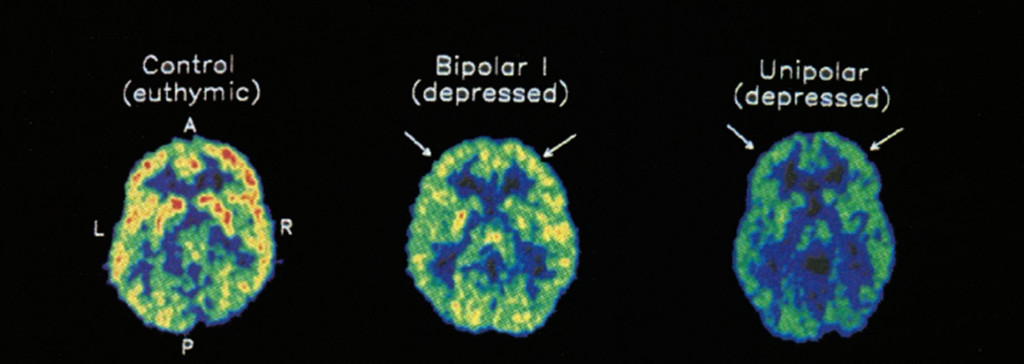
Location and Times
The meetings are free. Family and friends are encouraged to come. Meetings are peer run and confidential. Our address:
Crown City Suites
600 S. Lake Ave. Suite 200
Pasadena CA 91106Meetings:
Mon. through Fri. 6:00 p.m. to 8:00 p.m.Parking entrance from S. Lake Ave. at booth. Parking is free. For more days and locations, click here. You may also RSVP via Meetup. You don’t have to but it’s a good way to stay up to date on events!
Support Groups Can Change Gene Expression Which Triggers Bipolar Disorder and Depression

Although DBSA (Depression and Bipolar Support Alliance) support groups are 94% effective in helping bipolar (manic depressive) or clinically depressed members with treatment adherence, another important benefit is the ability to create a social network with others sharing a condition friends or loved ones may not understand because they simply haven’t “been there.”
For such individuals living in isolation, the science of epigenetics has conclusively demonstrated that this can be a life-changing or life-saving experience to an extent surprising to many immunologists and psychologists. In The Social Life of Genes: Shaping Your Molecular Composition, David Dobbs writes [italics mine]:
“If you actually measure stress, using our best available instruments, it can’t hold a candle to social isolation. Social isolation is the best-established, most robust social or psychological risk factor for disease out there. Nothing can compete.”
“You can’t change your genes. But if we’re even half right about all this, you can change the way your genes behave—which is almost the same thing. By adjusting your environment you can adjust your gene activity…
“Despite these well-known effects, Cole said he was amazed when he started finding that social connectivity wrought such powerful effects on gene expression.”
What this means is that the same genetic traits that cause a bipolar or depressive condition to manifest itself can be countered by a positive and supportive social support environment to the point the same gene expression is reduced in severity and can even become manageable. This is how, and why these groups WORK.
The Lethality of Loneliness
We are social animals. We were never meant to be alone. Air pollution increases yours odds of an early death by 5%, obesity by 20%, alcohol by 30%, and living with loneliness by 45%.
If You Could Prevent Something That Kills More Americans Than Car Accidents, Would You Do it?
At the National Conference on Mental Health, on June 3rd, 2013, President Obama noted that every day 22 vets take their own lives. Suicide now kills more Americans than car accidents, according to the latest CDC findings..
Suicide is the 3rd leading cause of death for ages 15-24.
It is the 2nd leading cause of death for ages 24-35.
It is the 4th leading cause of death for ages 35-44.
The mortality rate of untreated depression and bipolar disorder is self-evident. It is not a character flaw, it is not a personal weakness, it is a serious medical condition involving the center of our nervous system; responsible for our every breath, every thought, every word, every heart beat. The underlying cause can range from genetic predisposition to brain trauma.
Though the health of the brain clearly supersedes all else in terms of treatment priority, among society in general bipolar disorder does not yet have parity with a physical affliction in terms of recognition as a “valid” medical condition, even though the former will take the lives of up to about 20% of those with manic depression. To put this in perspective, it has about the same survival rate as breast cancer.

The hippocampus is also more vulnerable to stress than other areas of the brain, as evident in returning vets with PTSD, such as the case with Daniel Somers, who wrote in a devastating suicide letter so poignant it went viral:
My body has become nothing but a cage, a source of pain and constant problems. The illness I have has caused me pain that not even the strongest medicines could dull, and there is no cure. All day, every day a screaming agony in every nerve ending in my body. It is nothing short of torture. My mind is a wasteland, filled with visions of incredible horror, unceasing depression, and crippling anxiety, even with all of the medications the doctors dare give. Simple things that everyone else takes for granted are nearly impossible for me. I can not laugh or cry. I can barely leave the house. I derive no pleasure from any activity… This is what brought me to my actual final mission. Not suicide, but a mercy killing. I know how to kill, and I know how to do it so that there is no pain whatsoever. It was quick, and I did not suffer.
More than 20 million American adults live with depression, or an estimated 10% of the U.S. population. 2.3 million live with bipolar disorder. If you’re suffering from bipolar disorder or depression, you’re simply not alone. In women ages 40-59, 1 in 4 are now taking antidepressants.
So what can you do? One key tool with remarkable efficacy are support groups, and there’s a real science behind this. It is a means to deal with a largely genetic condition by creating an environment that changes gene expression.
If you are outside the Los Angeles County area and would like to find a support group near you, click here. For further information, you may email us at info@dbsasgv.org, call 626 359-7538 or use the Contact Form.
Muhammad Ali helps talk a suicidal man off the ninth floor of a high-rise structure in Los Angeles, 1981. pic.twitter.com/PRs3AXgQXZ
— Astonishing Pictures (@AstonishingPix) August 4, 2015
